Read the full lunacy:
rampant
Monday, 30 September 2019
American Loon #2246: Richard Sheridan
Read the full lunacy:
Combination SCAMs: from ‘HomeoPuncture’ to ‘Effective Reverse Energy Transfer Counselling’
Read the rest here: Combination SCAMs: from ‘HomeoPuncture’ to ‘Effective Reverse Energy Transfer Counselling’
Saturday, 28 September 2019
“Scientists have shown how homeopathy works” – journalists’ obsession with ‘balance’
Read the rest here: “Scientists have shown how homeopathy works” – journalists’ obsession with ‘balance’
Friday, 27 September 2019
Homeopathic provings: Bullshit about dogshit
Read the rest here: Homeopathic provings: Bullshit about dogshit
Thursday, 26 September 2019
The 20 principles of the World Federation of Chiropractic
Read the rest here: The 20 principles of the World Federation of Chiropractic
American Loon #2245: Christie Marie Sheldon
Read the full lunacy:
Wednesday, 25 September 2019
The de-randomised clinical trial (dRCT): how we might be fooled by seemingly rigorous research
Read the rest here: The de-randomised clinical trial (dRCT): how we might be fooled by seemingly rigorous research
Tuesday, 24 September 2019
Autologous whole blood therapy, another very surprising SCAM. Does it merit further study?
Read the rest here: Autologous whole blood therapy, another very surprising SCAM. Does it merit further study?
Monday, 23 September 2019
American Loon #2244: Dutch Sheets
Read the full lunacy:
Virucid: boosting the immune system or the manufacturer’s profit?
Read the rest here: Virucid: boosting the immune system or the manufacturer’s profit?
2019 SkS Weekly Climate Change & Global Warming Digest #38
Story of the Week... Toon of the Week... Coming Soon on SkS... Climate Feedback Reviews... SkS Week in Review... Poster of the Week...
Story of the Week...
Global Climate in 2015-2019: Climate change accelerates
Record greenhouse gas concentrations mean further warming
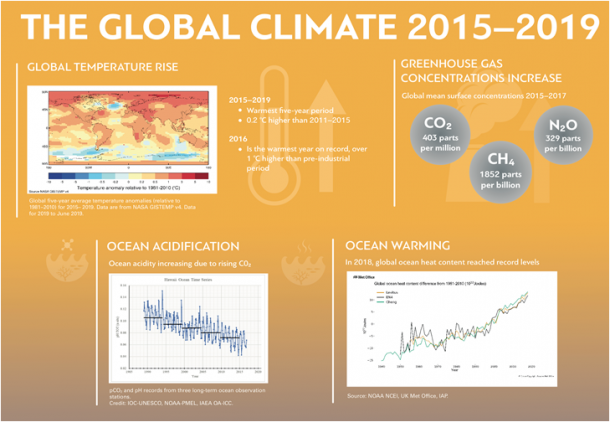
The tell-tale signs and impacts of climate change – such as sea level rise, ice loss and extreme weather – increased during 2015-2019, which is set to be the warmest five-year period on record, according to the World Meteorological Organization (WMO). Greenhouse gas concentrations in the atmosphere have also increased to record levels, locking in the warming trend for generations to come.
The WMO report on The Global Climate in 2015-2019, released to inform the United Nations Secretary-General’s Climate Action Summit, says that the global average temperature has increased by 1.1°C since the pre-industrial period, and by 0.2°C compared to 2011-2015.
The climate statement – which covers until July 2019 - was released as part of a high-level synthesis report from leading scientific institutions United in Science under the umbrella of the Science Advisory Group of the UN Climate Summit 2019. The report provides a unified assessment of the state of Earth system under the increasing influence of climate change, the response of humanity this far and projected changes of global climate in the future. It highlights the urgency and the potential of ambitious climate action in order to limit potentially irreversible impacts.
An accompanying WMO report on greenhouse gas concentrations shows that 2015-2019 has seen a continued increase in carbon dioxide (CO2) levels and other key greenhouse gases in the atmosphere to new records, with CO2 growth rates nearly 20% higher than the previous five years. CO2 remains in the atmosphere for centuries and in the ocean for even longer. Preliminary data from a subset of greenhouse gas observational sites for 2019 indicate that CO2 global concentrations are on track to reach or even exceed 410 ppm by the end of 2019.
“Climate change causes and impacts are increasing rather than slowing down,” said WMO Secretary-General Petteri Taalas, who is co-chair of the Science Advisory Group of the UN Climate Summit.
“Sea level rise has accelerated and we are concerned that an abrupt decline in the Antarctic and Greenland ice sheets, which will exacerbate future rise. As we have seen this year with tragic effect in the Bahamas and Mozambique, sea level rise and intense tropical storms led to humanitarian and economic catastrophes,” he said.
“The challenges are immense. Besides mitigation of climate change, there is a growing need to adapt. According to the recent Global Adaptation Commission report the most powerful way to adapt is to invest in early warning services, and pay special attention to impact-based forecasts,” he said.
“It is highly important that we reduce greenhouse gas emissions, notably from energy production, industry and transport. This is critical if we are to mitigate climate change and meet the targets set out in the Paris Agreement,” he said.
“To stop a global temperature increase of more than 2 degrees Celsius above pre-industrial levels, the level of ambition needs to be tripled. And to limit the increase to 1.5 degrees, it needs to be multiplied by five,” he said.
Sea level rise:
Over the five-year period May 2014 -2019, the rate of global mean sea-level rise has amounted to 5 mm per year, compared with 4 mm per year in the 2007-2016 ten-year period. This is substantially faster than the average rate since 1993 of 3.2 mm/year. The contribution of land ice melt from the world glaciers and the ice sheets has increased over time and now dominate the sea level budget, rather than thermal expansion.
Shrinking Ice:
Throughout 2015-2018, the Arctic’s average September minimum (summer) sea-ice extent was well below the 1981-2010 average, as was the average winter sea-ice extent. The four lowest records for winter occurred during this period. Multi-year ice has almost disappeared.
Antarctic February minimum (summer) and September maximum (winter) sea-ice extent values have become well below the 1981-2010 average since 2016. This is in contrast to the previous 2011-2015 period and the long term 1979-2018 period. Antarctic summer sea ice reached its lowest and second lowest extent on record in 2017 and 2018, respectively, with 2017 also being the second lowest winter extent.
The amount of ice lost annually from the Antarctic ice sheet increased at least six-fold, from 40 Gt per year in 1979-1990 to 252 Gt per year in 2009-2017.
The Greenland ice sheet has witnessed a considerable acceleration in ice loss since the turn of the millennium.
For 2015-2018, the World Glacier Monitoring Service (WGMS) reference glaciers indicates an average specific mass change of −908 mm water equivalent per year, higher than in all other five-year periods since 1950.
Ocean heat and acidity:
More than 90 % of the excess heat caused by climate change is stored in the oceans. 2018 had the largest ocean heat content values on record measured over the upper 700 meters, with 2017 ranking second and 2015 third.
The ocean absorbs around 30% of the annual anthropogenic emissions of CO2, thereby helping to alleviate additional warming. The ecological costs to the ocean, however, are high, as the absorbed CO2 reacts with seawater and changes the acidity of the ocean. There has been an overall increase in acidity of 26% since the beginning of the industrial revolution.
Extreme events:
More than 90 % of the natural disasters are related to weather. The dominant disasters are storms and flooding, which have also led to highest economic losses. Heatwaves and drought have led to human losses, intensification of forest fires and loss of harvest.
Heatwaves, which were the deadliest meteorological hazard in the 2015-2019 period, affecting all continents and resulting in numerous new temperature records. Almost every study of a significant heatwave since 2015 has found the hallmark of climate change, according to the report.
The largest economic losses were associated with tropical cyclones. The 2017 Atlantic hurricane season was one of the most devastating on record with more than US$ 125 billion in losses associated with Hurricane Harvey alone. On the Indian Ocean, in March and April 2019, unprecedented and devastating back-to-back tropical cyclones hit Mozambique.
Wildfires
Wildfires are strongly influenced by weather and climate phenomena. Drought substantially increases the risk of wildfire in most forest regions, with a particularly strong influence on long-lived fires. The three largest economic losses on record from wildfires have all occurred in the last four years.
In many cases, fires have led to massive releases of carbon dioxide to the atmosphere. Summer 2019 saw unprecedented wildfires in the Arctic region. In June alone, these fires emitted 50 megatons (Mt) of carbon dioxide into the atmosphere. This is more than was released by Arctic fires in the same month from 2010 to 2018 put together. There were also massive forest fires in Canada and Sweden in 2018. There were also widespread fires in the non-renewable tropical rain forests in Southern Asia and Amazon, which have had impacts on the global carbon budget.
Climate change and extreme events
According to the Bulletin of the American Meteorological Society, over the period 2015 to 2017, 62 of the 77 events reported show a significant anthropogenic influence on the event’s occurrence, including almost every study of a significant heatwave. An increasing number of studies are also finding a human influence on the risk of extreme rainfall events.
Global Climate in 2015-2019: Climate change accelerates, WMO Press Release, Sep 22, 2019
Toon of the Week...

Coming Soon on SkS...
- A brief guide to the impacts of climate change on food production (Daisy Simmons)
- Skeptical Science New Research for Week #38, 2019 (Doug Bostrom)
- How the Greenland ice sheet fared in 2019 (Ruth Mottram, Martin Stendel & Peter Langen)
- A small electric plane demonstrates promise, obstacles of climate-friendly air travel (Lindsay Fendt)
- What psychotherapy can do for the climate and biodiversity crises (Caroline Hickman)
- 2019 SkS Weekly Climate Change & Global Warming News Roundup #39 (John Hartz)
- 2019 SkS Weekly Climate Change & Global Warming Digest #39 (John Hartz
Climate Feedback Reviews...
[To be added]
Poster of the Week...
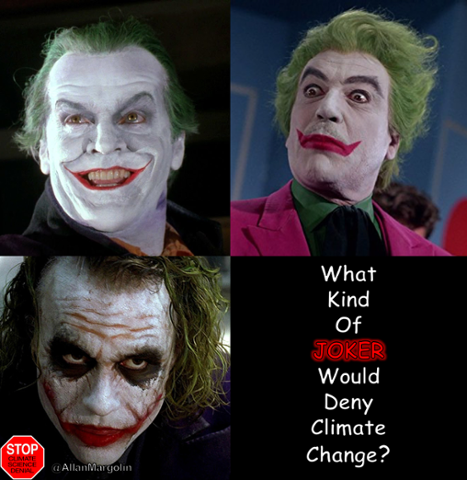
SkS Week in Review...
- 2019 SkS Weekly Climate Change & Global Warming News Roundup #38 by John Hartz
- The Consensus Handbook: download and translations by Baerbel
- Greta Thunberg is a painful reminder of decades of climate failures by Dana Nuccitelli (Bulletin of the Atomic Scientists)
- Skeptical Science to join the Global Climate Strike on September 20! by BaerbelW
- Skeptical Science New Research for Week #37, 2019 by Doug Bostrom
- 'Trollbots' Swarm Twitter with Attacks on Climate Science Ahead of UN Summit by Marianne Lavell (InsideClimate News)
- 2019 SkS Weekly Climate Change & Global Warming Digest #37 by John Hartz
from Skeptical Science
via IFTTT
Saturday, 21 September 2019
EBM anyone? Yes, but which one?
Read the rest here: EBM anyone? Yes, but which one?
Friday, 20 September 2019
Myelopathy following manipulation of the neck
Read the rest here: Myelopathy following manipulation of the neck
Thursday, 19 September 2019
How to save money with homeopathy … yes, really!
Read the rest here: How to save money with homeopathy … yes, really!
American Loon #2243: Robert Sheaffer
Read the full lunacy:
Wednesday, 18 September 2019
Does placebo research boost pseudoscience?
Read the rest here: Does placebo research boost pseudoscience?
I’d Like to Play a Game
Read more at: I’d Like to Play a Game by Reuben
Tuesday, 17 September 2019
American Loon #2242: Matt Shea
Read the full lunacy:
Journals of chiropractic are not a reliable source of information
Read the rest here: Journals of chiropractic are not a reliable source of information
Monday, 16 September 2019
Discussing with a homeopath is like playing chess with a pigeon
Read the rest here: Discussing with a homeopath is like playing chess with a pigeon
2019 SkS Weekly Climate Change & Global Warming Digest #37
Story of the Week... Editorial of the Week... Toon of the Week... Coming Soon on SkS... Climate Feedback Reviews... SkS Week in Review... Poster of the Week...
Story of the Week...
'Going to the streets again': what you need to know about Friday's climate strike
Organisers expect a stronger presence from unions, workers and companies as student activists reach out to adults
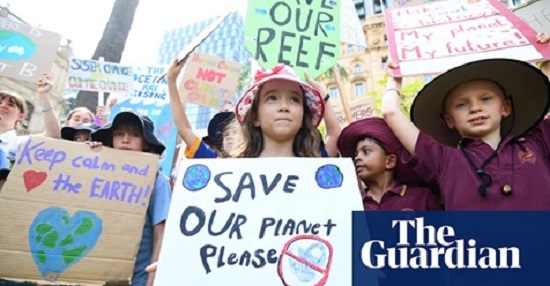
Australian school students are set to walk out of classrooms again to call for climate action as part of a global strike three days before a UN summit. Photograph: Dan Peled/AAP
Thousands of Australian school students are again preparing to walk out of classrooms across the country to demand action on the climate crisis.
The global mass day of action will take place on Friday 20 September, three days before the United Nations climate summit in New York.
It follows strikes in March this year in which 150,000 people marched in Australia and 1.5 million took part worldwide.
Organisers expect next week’s global strikes will be bigger and, this time there will be a much stronger presence from unions, workers and companies that have signed up to strike in solidarity with the young activists.
Here’s a guide to what’s happening.
'Going to the streets again': what you need to know about Friday's climate strike by Lisa Cox, Environment, Guardian, Sep 14, 2019
Click here to access the entire article as posted on the Guardian website.
Editorial of the Week...
Can we please base our climate change discussions on facts?
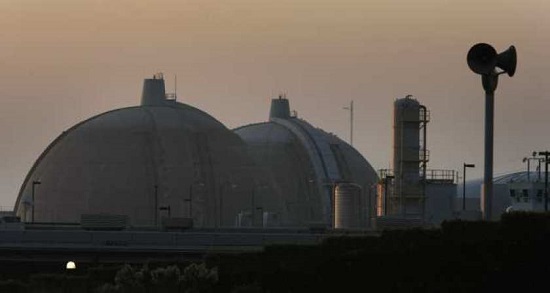
One flawed assumption about global warming is that nuclear power has to be part of the solution. (Allen J. Schaben / Los Angeles Times)
In the debate about global warming, as last week’s climate change town hall on CNN made clear, policy discussions are often based on false premises. In Thursday’s debate, the Democratic presidential candidates will again discuss climate issues. Here are a few faulty assumptions they should reject.
One oft-repeated canard is that we won’t be able to reach zero net carbon dioxide emissions without re-embracing nuclear power. Several candidates responded to this claim last week by saying they could not support nuclear power because it was too expensive and we haven’t solved the waste disposal problem. Both those things are true, but they leave a crucial point out of the discussion.
If it were really the case that we couldn’t meet our energy needs without nuclear power, then we could certainly suck up the cost (currently about double that of solar, and as much as three times that of wind) and get back to work on waste disposal. But the assertion that we can’t decarbonize the energy system without additional nuclear power is flawed.
Can we please base our climate change discussions on facts?, Opinion by Naomi Oreskes, Los Angeles Times, Sep 12, 2019
Click here to access the entire Op-ed as published on the Los Angeles Times website.
Toon of the Week...
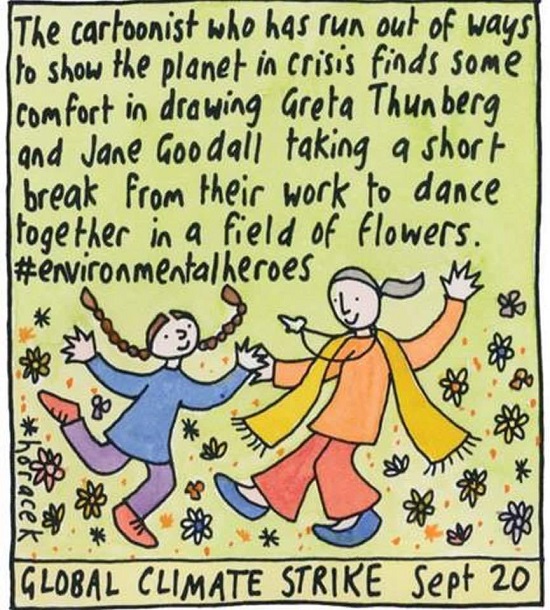
Coming Soon on SkS...
- Skeptical Science New Research for Week #36, 2019 (Doug Bostrom)
- Climate change and food (Yale Climate Connections)
- Skeptical Science to join the Global Climate Strike (Baerbel)
- The Consensus Handbook: Download and (German) translation (Baerbel)
- 2019 SkS Weekly Climate Change & Global Warming News Roundup #38 (John Hartz)
- 2019 SkS Weekly Climate Change & Global Warming Digest #38 (John Hartz)
Climate Feedback Reviews...
[To be added.]
Poster of the Week...
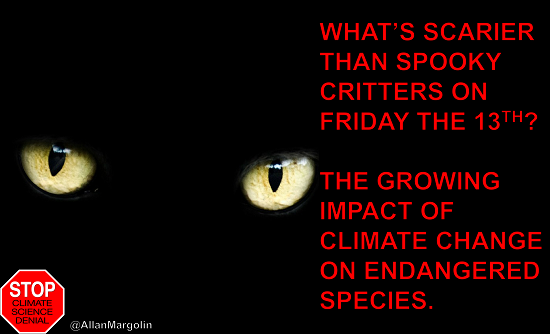
SkS Week in Review...
- 2019 SkS Weekly Climate Change & Global Warming News Roundup #37 by John Hartz
- Climate denier scientists think these 5 arguments will persuade EU and UN leaders by Dana Nuccitelli
- Skeptical Science New Research for Week #36, 2019 by Doug Bostrom
- Key facts about the new EPA plan to reverse the Obama-era methane leaks rule by Dana Nuccitelli (Yale Climate Connection)
- 2019 SkS Weekly Climate Change & Global Warming Digest #36 by John Hartz
from Skeptical Science
via IFTTT
Sunday, 15 September 2019
It’s never the anti-vaccine people’s fault. It’s always the vaccines, right?
Read more at: It’s never the anti-vaccine people’s fault. It’s always the vaccines, right? by Reuben
American Loon #2241: Randy Sharp
Read the full lunacy:
Saturday, 14 September 2019
Re-inventing anatomy, physiology and pathology: the ‘NHS Natural Health School’
Read the rest here: Re-inventing anatomy, physiology and pathology: the ‘NHS Natural Health School’
Friday, 13 September 2019
American Loon #2240: Sharum Sharif
Read the full lunacy:
Homeopathy for pre-menstrual syndrome? A critical assessment of a recent trial
Read the rest here: Homeopathy for pre-menstrual syndrome? A critical assessment of a recent trial
Thursday, 12 September 2019
Boris Johnson: almost a homeopath?
Read the rest here: Boris Johnson: almost a homeopath?
Wednesday, 11 September 2019
Does this new test of Reiki’s ‘efficacy’ overturn my previous assessment?
Read the rest here: Does this new test of Reiki’s ‘efficacy’ overturn my previous assessment?
American Loon #2239: Lia Shapiro
Read the full lunacy:
Tuesday, 10 September 2019
Korean acupuncture research, and the suspension of critical thinking
Read the rest here: Korean acupuncture research, and the suspension of critical thinking
Monday, 9 September 2019
American Loon #2238: Susan Shannon
Read the full lunacy:
No chemicals please, we are alternative!
Read the rest here: No chemicals please, we are alternative!
2019 SkS Weekly Climate Change & Global Warming Digest #36
Story of the Week... Toon of the Week... Coming Soon on SkS... Climate Feedback Reviews... SkS Week in Review... Poster of the Week...
Story of the Week...
The air above Antarctica is suddenly getting warmer – here’s what it means for Australia
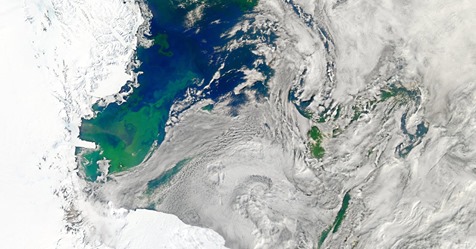
Antarctic winds have a huge effect on weather in other places. Photo: NASA Goddard Space Flight Center/Flickr CC BY-SA
Record warm temperatures above Antarctica over the coming weeks are likely to bring above-average spring temperatures and below-average rainfall across large parts of New South Wales and southern Queensland.
The warming began in the last week of August, when temperatures in the stratosphere high above the South Pole began rapidly heating in a phenomenon called “sudden stratospheric warming”.
In the coming weeks the warming is forecast to intensify, and its effects will extend downward to Earth’s surface, affecting much of eastern Australia over the coming months.
The Bureau of Meteorology is predicting the strongest Antarctic warming on record, likely to exceed the previous record of September 2002.
The air above Antarctica is suddenly getting warmer – here’s what it means for Australia by Harry Hendon, Andrew B. Watkins, Eun-Pa Lim & Griffith Young , The Conversation AU, Sep 6, 2019
Click here to access the entire article.
Toon of the Week...
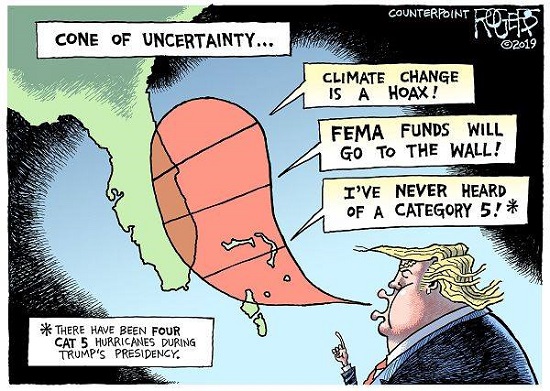
Hat tip to the Facebook page of Stop Climate Science Denial
Coming Soon on SkS...
- Climate implications of the EPA methane rule rollback (Dana)
- Skeptical Science New Research for Week #36, 2019 (Doug Bostrom)
- How climate change is making hurricanes more dangerous (Jeff Berardelli)
- What psychotherapy can do for the climate and biodiversity crises (Caroline Hickman)
- A small electric plane demonstrates promise, obstacles of climate-friendly air travel (Lindsay Fendt)
- 2019 SkS Weekly Climate Change & Global Warming News Roundup #37 (John Hartz)
- 2019 SkS Weekly Climate Change & Global Warming Digest #37 (John Hartz)
Climate Feedback Reviews...
[To be added.]
Poster of the Week...
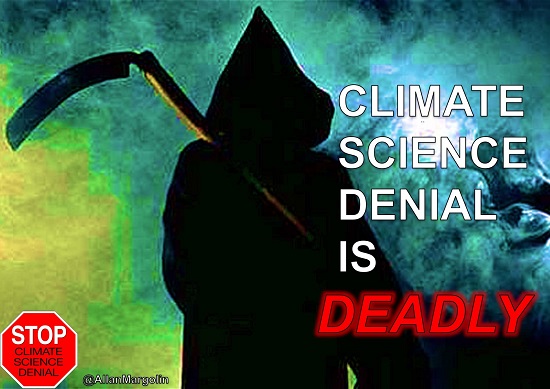
SkS Week in Review...
- 2019 SkS Weekly Climate Change & Global Warming News Roundup #36 by John Hartz
- SkS Analogy 20 - The Tides of Earth by Evan & jg
- Skeptical Science New Research for Week #35, 2019 by Doug Bostrom
- 2019 SkS Weekly Climate Change & Global Warming News Roundup #35 by John Hartz
- Consensus on consensus hits half a million downloads by John Cook
from Skeptical Science
via IFTTT
Saturday, 7 September 2019
Who says it’s all negative? The addition of yoga to aerobic exercise programs reduces global cardiovascular risk
Read the rest here: Who says it’s all negative? The addition of yoga to aerobic exercise programs reduces global cardiovascular risk
Friday, 6 September 2019
A remarkable exchange with a general practitioner who seems to like homeopathy
Read the rest here: A remarkable exchange with a general practitioner who seems to like homeopathy
Thursday, 5 September 2019
Who are the most ‘influential’ researcher of so-called alternative medicine (SCAM)?
Read the rest here: Who are the most ‘influential’ researcher of so-called alternative medicine (SCAM)?
Wednesday, 4 September 2019
Osteopathic hubris
Read the rest here: Osteopathic hubris
American Loon #2237: Doyel Shamley
Read the full lunacy:
Coming Soon…
Read more at: Coming Soon… by Reuben
Tuesday, 3 September 2019
Bach flower remedies for disruptive children? How can ‘peer-review, critical study and clinical scholarship’ produce such BS?
Read the rest here: Bach flower remedies for disruptive children? How can ‘peer-review, critical study and clinical scholarship’ produce such BS?
Monday, 2 September 2019
A positive trial of homeopathy for pre-menstrual syndrome (PMS)
Read the rest here: A positive trial of homeopathy for pre-menstrual syndrome (PMS)
American Loon #2236: Gene Shafer
Read the full lunacy: